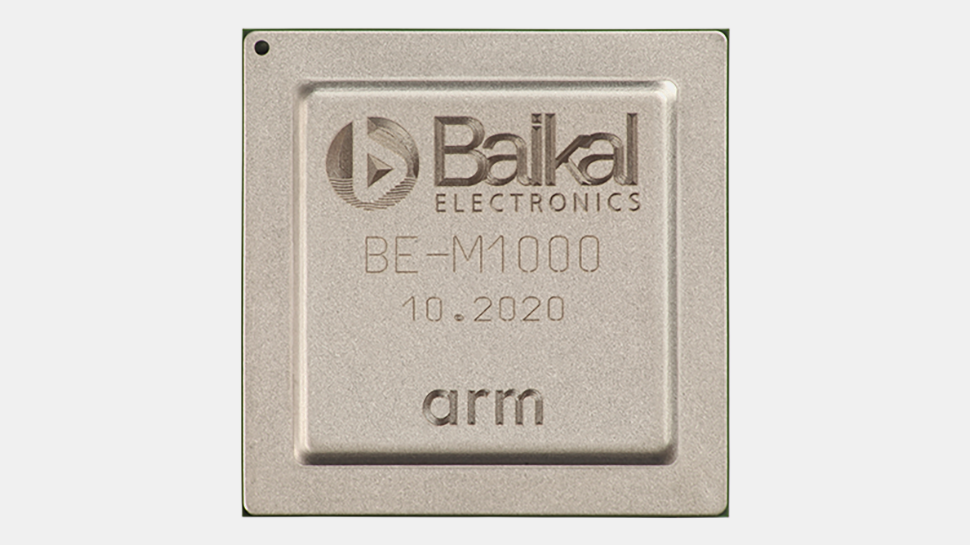
Russia has managed to obtain a small batch of 48-core Baikal-S processors aimed at servers and storage devices, reports CNews citing Vasily Shpak, Deputy Minister of Industry. The batch of 1,000 units will be distributed among developers and makers of servers, which will design products around these processor, something that suggests that more CPUs are incoming. The only question is from where did Russia-based Baikal Electronics go them?
After Russia started full-scale war against Ukraine in February, 2022, Taiwanese authorities imposed strict export controls on processors that can be shipped to Russia and Belarus. As a result, Russian entities like Baikal Electronics can only procure 32-bit CPUs operating at frequencies of up to 25 MHz and offering performance of up to 5 GFLOPS from Taiwan companies, which pretty much excludes any modern technology.
By contrast, the Baikal Electronics BE-S1000 server-grade processor is a pretty capable part: it is said to offer performance of 358 FP64 GFLOPS at 120W. The Baikal-S unit packs 48 Arm Cortex-A75 cores at 2.50 GHz, has six 72-bit memory interfaces supporting up to 768 GB of DDR4-3200 ECC memory in total (i.e., 128GB per channel), five PCIe 4.0 x16 (4x4) interfaces, one USB 2.0 controller, two 1GbE interfaces, and various general purpose I/O. The chip was originally set to be made using TSMC's 16FFC process technology, but its developer could only obtain pre-production samples and could never get production CPUs. Baikal Electronics had ambitious plans to scale production to 600,000 BE-S1000 units annually by 2025, but got zero chips as Russia invaded Ukraine.
Apparently, Baikal Electronics has either ported design of the Baikal-S to another process technology and placed an order with another foundry (presumably in China), or found a way to get the chips from TSMC by deceiving the chipmaker and placing its order using a proxy.
Industry insiders see the small shipment as a symbolic but crucial milestone. The batch will allow Russian companies to begin integrating Baikal-S processors into their system designs, which is expected to take at least a year. If Baikal Electronics builds its BE-S1000 chips at a new foundry, it will also take it about a year to kick off mass production, presumably in China.
Considering the fact that Russian companies have hard times getting processors from renowned makers, demand for the Baikal-S CPU will be high and can far outpace supply.







